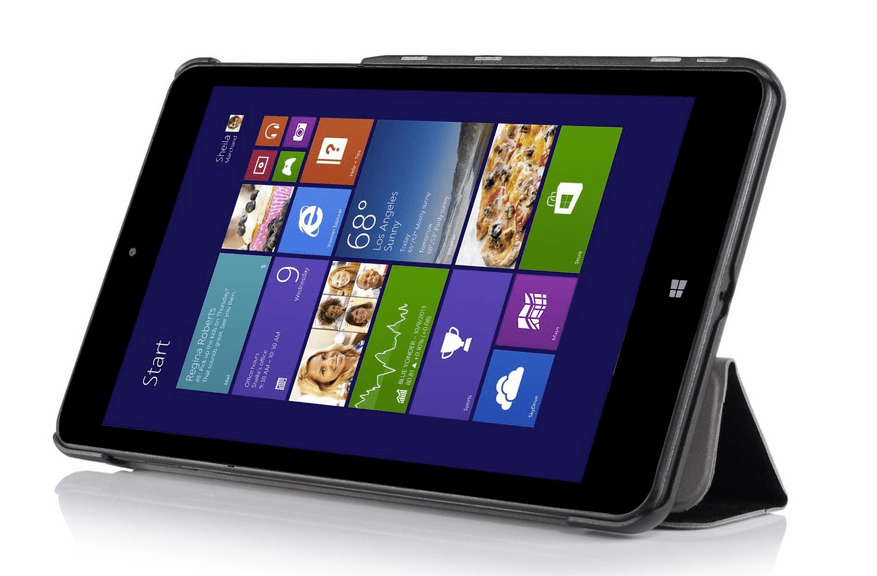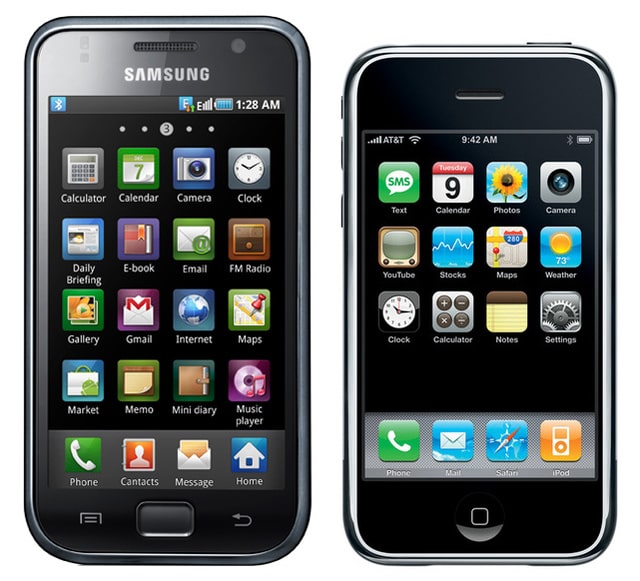The Digital Reader |
- The Morning Coffee – 6 May 2014
- Celebrate the Day Against DRM, Redux
- Microsoft Sends out Invites for Press Event – Surface Mini?
- Conspiracy, Bribery, and Corruption: Why Patent Infringement is just the Start of Samsung’s Problems
- WordPress.com Parent Automattic Raises $160 Million, Now Valued at $1.16 Billion
- Leaked Specs Detail new Galaxy Tab S Line
- BookBaby Launches Direct Sales for Self-Publishing Authors
- Wiser Wants to Help Readers Sort the Web – for a Fee
| The Morning Coffee – 6 May 2014 Posted: 05 May 2014 09:30 PM PDT Top stories this Tuesday morning include a Pantone book created 4 hundred years ago (link), why so many Chinese websites use numbers in their URLs (link), secret ibraries of New York (link), past predictions of the future of ebooks (link), and more.
The post The Morning Coffee – 6 May 2014 appeared first on The Digital Reader. |
| Celebrate the Day Against DRM, Redux Posted: 05 May 2014 09:10 PM PDT Today DRM, or Digital Restrictions Management, is the practice of imposing technological restrictions that control what users can do with digital media. When a user is unable to play a DVD bought legally in another part of the wold, play a game without an internet connection, or read an ebook on a different device, they are being restricted by DRM. It’s been nine years since the first Day Against DRM, and very little has changed in that time. The hot button issues on that day in October 2006 were DRM on music, videos, and games (no one was thinking of ebooks or audiobooks yet). In the 9 years since then music has mostly gone DRM-free, but that’s the only type of content to escape its clutches. In fact, the exact opposite has happened. DRM has spread far beyond content to infect all types of products, including cars, coffee, and ink cartridges (which have in fact had DRM since long before the first Day Against DRM). At the same time, the rights of users are curtailed left and right. In the past year we have seen multiple examples of the perils of DRM, including the closure of Diesel eBooks and Sony ebook stores. (Even though Sony promised a smooth transition to Kobo, many readers still lost ebooks in the process.) But aside from actively protecting yourself, there is little that users can do to stop the encroaching tendrils of DRM. With that in mind, here are a few tools that will help you free your ebooks and audiobooks. Amazon likes to pretend that they are DRM agnostic, but in reality they insist on DRM on audiobooks. This app can reportedly remove the DRM automatically. I haven’t tried it, so I cannot confirm that. This is a FREE 1 step removal tool for Epub and PDF encumbered by Adobe Adept DRM. It can also remove the DRM from Kindle ebooks as well. I haven’t tried the Kindle tool yet, but I think it’s worth your time to take a look. That tool is based on the work of Apprentice Alf, the patron saint of ebook DRM-removal tools. How would you like to remove the DRM from ebooks ought from iBooks? Requiem can do that. – And for those who use calibre, did you know that you can install a DRM-removal plugin? I’ve posted instructions that show you how to configure a plugin to remove Kindle, Nook, or Adobe DRM. The same plugin now works for all 3 types of DRM, though setting it up for the Nook does require an extra step. P.S. The above tools can also remove DRM from loaned ebooks and library audiobooks. Please don’t. The post Celebrate the Day Against DRM, Redux appeared first on The Digital Reader. |
| Microsoft Sends out Invites for Press Event – Surface Mini? Posted: 05 May 2014 06:43 PM PDT Microsoft's No details have been leaked about the event, but based on the hint dropped by the invite I think Microsoft is going to launch the Surface Mini in a couple weeks. Rumors of a smaller Surface tablet have been circulating for nearly a year now, and a couple weeks ago those rumors were confirmed by a bunch of leaked product listings on Amazon.com. The listings were posted by a case maker, and they revealed that the Surface Mini would be an 8″ tablet – probably running either Windows RT or Windows 8. Little is known about the Surface Mini other than the screen size, and unfortunately those leaked product listings have since been removed from Amazon.
Microsoft first launched the Surface tablet in late 2012, and in 2013 they launched a couple follow on models. The Surface tablets currently all have 10.6″ screens, including the Surface 2 which runs Windows RT on a 1.7GHz Tegra 4 CPU with 2GB of RAM, and 32GB or 64GB internal storage. There’s also the more expensive Surface 2 Pro, which runs Windows 8.1 on a Core i5 Haswell CPU, 4GB or 8GB RAM, and up to 512GB internal storage. Microsoft has never sold very many Surface tablets due to its high price tag, but that hasn’t stopped them from continuing to make their flagship tablet. And it certainly hasn’t discouraged Microsoft from launching the Surface Mini a couple weeks from now. The post Microsoft Sends out Invites for Press Event – Surface Mini? appeared first on The Digital Reader. |
| Conspiracy, Bribery, and Corruption: Why Patent Infringement is just the Start of Samsung’s Problems Posted: 05 May 2014 01:55 PM PDT With After nearly 3 years of litigation in courts around the world it’s easy to become numb to the story, but it’s worth noting that there’s a deeper story here than the usual squabbling. This blogger has a general low opinion of patent litigation, but a recent article in Vanity Fair has shown me that there’s more to the Apple-Samsung fight than simply jealous competitors. The Samsung Apple dispute started in 2010, when Samsung released the Galaxy S, a smartphone with a 4″ screen. Apple was not happy:
Just to give you an idea of the similarities, here’s the Galaxy S next to the then current iPhone: While both Samsung and Apple have copied ideas from their competitors or simply duplicated ideas first expressed elsewhere, Samsung’s shady behavior goes much further than that. Take, for example, the first known instance of Samsung conspiring to fix prices:
When the conspiracy was finally exposed in 2007 onward (long after CRT stopped being a viable market), Samsung ended up paying a few hundred million in fines in Europe, the United States, Japan, and South Korea. And then there is the LCD price-fixing conspiracy:
That conspiracy resulted in lawsuits by Dell, AT&T, and other companies, as well as numerous fines in China, the United States, and elsewhere. And let’s not forget Samsung’s conspiracy to rig the global market for RAM:
That cost Samsung over $300 million in fines in the US alone. And now that you know that Samsung has conspired with their competitors in no less than 3 different industries, it should probably come as no surprise that the company is massively corrupt. It’s so bad that Samsung’s former general counsel blew the whistle:
After few senior managers were prosecuted aside from the CEO (they got him for tax evasion), Mr Kim went on to write a book detailing his experiences with Samsung. There are plenty more examples of Samsung’s misdeeds in the Vanity Fair article, including examples of many patent infringement lawsuits, but I’m going to cut the list here. The point I want to make, folks, is that one party in the Samsung-Apple dispute is guilty of massive and repeated conspiracies. I don’t know about you but that radically changes my view of Apple’s complaint’s about Samsung copying Apple’s ideas and patents. Apple’s accusations of Samsung infringing upon Apple patents and copying Apple’s designs aren’t just bitter grapes on the part of Apple; Samsung is engaging in a concerted and organized campaign to rip off anyone they can for as long as they can. P.S. For once, I am happy that Samsung doesn’t have much of a presence in ebooks, otherwise I would be expecting to one day read about Samsung conspiring with publishers. The post Conspiracy, Bribery, and Corruption: Why Patent Infringement is just the Start of Samsung’s Problems appeared first on The Digital Reader. |
| WordPress.com Parent Automattic Raises $160 Million, Now Valued at $1.16 Billion Posted: 05 May 2014 09:49 AM PDT
According to a blog post by Automattic CEO Matt Mullenweg, the round was led by Insight Venture Partners and included existing investors True Ventures, Tiger Global Management, and Iconiq, as well as new investors Chris Sacca and Endurance. Automattic plans to use the new capital to continue to fund its expansion efforts. “Things were and are going well, but there was an opportunity cost to how we were managing the company toward break-even, and we realized we could invest more into WordPress and our products to grow faster. Also our cash position wasn't going to be terribly strong especially after a number of infrastructure and product investments this and last year, ” Mullenweg wrote in his post. WordPress powers 22% of the world's top 10 million websites, according to W3Techs, and Automattic’s WordPress VIP service also hosts some of the web’s largest news sites, including, TechCrunch, MediaBistro, and others. In addition to hosting and developing WordPress platform, Automattic also offers a number of services including Akismet spam), Polldaddy, Intense Debate (comment management), VaultPress, Cloudup, and more. A few weeks ago they acquired Longreads, a curation service which shares links to long form content. Following $29.5 million raised in 2008, this is the nine-year-old company’s third
The post WordPress.com Parent Automattic Raises $160 Million, Now Valued at $1.16 Billion appeared first on The Digital Reader. |
| Leaked Specs Detail new Galaxy Tab S Line Posted: 05 May 2014 08:41 AM PDT Samsung SamMobile reported earlier today that Samsung is adding a new line of Galaxy Tab S tablets to the existing Galaxy Tab, Galaxy Note, and the Pro lines. According to their sources, the Galaxy Tab S line will consist of 2 larger tablets with 10.5″ and 8.4″ screens. The specs will place the Tab S closer to the premium Pro lines than the budget Galaxy Tab line. The Galaxy Tab S will pack an 8-core Exynos 5 chip, combining four 1.9GHz cores and four 1.3GHz cores as well as a 6-core 533MHz Mali-T628 GPU. They will have 3GB RAM, an 8MP camera, and a 2.1 MP camera. In terms of connectivity, the Galaxy Tab S will offer Wifi, Bluetooth, Glonass, GPS, and an IR blaster. There will also be models with LTE, but current reports say there won’t be a 3G model. Both the 8.4″ and 10.5″ tablets will have a new WQXGA AMOLED display with the same resolution: 2560 x 1600. They will also have a fingerprint scanner, and like the Galaxy S5 smartphone the scanner will be built into the home button. No pictures of the Galaxy Tab S tablets have leaked yet, but the tablets are described as being similar in design to the recently announced Galaxy Tab 4, only with slimmer edges and a nicer perforated back panel. These are a rather curious set of specs, and I have to wonder whether they are real. These tablets are largely the same as the existing Galaxy Tab Pro line, only with an extra GB of RAM and a better screen (and a better CPU for the 8.4″ model). The tablets I described above read like someone took the specs of the Galaxy Tab Pro 10.1, added another GB of RAM and a better screen, and then slapped a new name on it. With that in mind, I think we could be looking at new and smaller Galaxy Note Pro models. The only existing Galaxy Note Pro has a 12.2″ screen, and Samsung might want to compliment it with smaller models. But there is no mention of a stylus, so maybe not. The post Leaked Specs Detail new Galaxy Tab S Line appeared first on The Digital Reader. |
| BookBaby Launches Direct Sales for Self-Publishing Authors Posted: 05 May 2014 07:31 AM PDT BookBaby In late February 2014 this ebook distributor launched BookShop, which enabled authors to build landing pages for their ebooks with a description and links to ebook retailers where the ebooks can be bought. Today BookBaby is expanding BookShop with a new direct sale option. Authors can now sell their ebooks via BookBaby, earning a larger share of the sale and getting paid fast. The ebooks are offered in Epub, PDF, and Kindle formats, DRM-free. The new BookShop retail store pays authors 85% of each sale, and authors are reimbursed within days – not months or quarters later. “It's very simple — BookShop pays more and pays fast. Faster than anyone else," said Steven Spatz, Chief Marketing Officer for BookBaby. “That's what every author is looking for. For example if you sell an eBook for ten bucks on a Friday, you'll see $8.50 show up in your account the following Monday. No other company gets money back to its authors like BookBaby.” BookBaby’s quick turnaround compares well even to Amazon, which pays royalties monthly but can take up to 60 days to process a payment. And the high royalty rate means that this deal is as good or better for authors than the terms offered by Smashwords, Amazon, or other retailers. BookShop is a free service for every BookBaby author, including writers who are now taking advantage of BookBaby's free eBook publishing package. It is just the latest new service offered by BookBaby, which has been working for the past couple years to distinguish itself as an up-market full-service ebook distributor (as opposed to Smashwords, which is best known for its minimalist service). The post BookBaby Launches Direct Sales for Self-Publishing Authors appeared first on The Digital Reader. |
| Wiser Wants to Help Readers Sort the Web – for a Fee Posted: 05 May 2014 05:22 AM PDT When it A new startup has just raised its first million dollars, and it is reportedly launching this week with the goal of tapping into that corporate market. Wiser is the work of serial entrepreneur Sandeep Ayyappan, whose name you might have heard in connection with Delve.
Like Delve, Wiser is a news curation service, but the early descriptions sound subtly different:
In comparison, when Delve launched two years ago the press coverage was focused on its collaborative and discussion features.The Delve website is gone, so I don’t know how long it retained that focus, but the services are close enough that I think it’s safe to say one grew out of the other. The paid market for news curation may not get much attention, but it’s not new. Delve/Wiser is the second company I have written about which offers this kind of service; during the Readerpocalypse last summer I happened upon Curata. This seven year old company has been providing a service similar to the one offered by Wiser, and it boasts a customer list which spans quite a few industries. The post Wiser Wants to Help Readers Sort the Web – for a Fee appeared first on The Digital Reader. |
| You are subscribed to email updates from The Digital Reader To stop receiving these emails, you may unsubscribe now. | Email delivery powered by Google |
| Google Inc., 20 West Kinzie, Chicago IL USA 60610 | |




![automattic_wp[1]](http://www.the-digital-reader.com/wp-content/uploads/2014/04/automattic_wp1-150x150.png) Automattic
Automattic
![logo@1x[1]](http://www.the-digital-reader.com/wp-content/uploads/2014/05/logo@1x1.png)
![wiser-screenshot[1]](http://www.the-digital-reader.com/wp-content/uploads/2014/05/wiser-screenshot1.png)
No comments:
Post a Comment